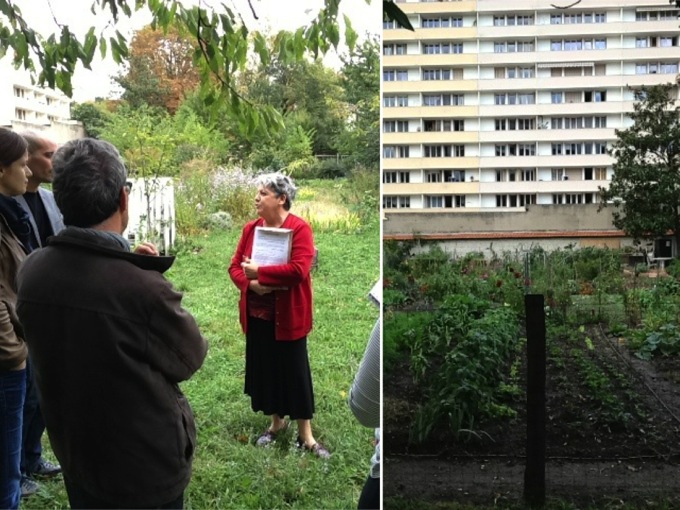Lyon / Opportunities and challenges
Synergizing between levels and sectors
Food as habitat and transportation is pointed one of the most critical issue in terms of sustainability. The Sustainable food for urban communities topic emerges as a new concern for cities. It tends to involve different areas of competences of the municipalities that most hardly used to collaborate before.
In Lyon in particular, a systematic involvement of each of sectors of the municipality with a potential to leverage on food has been made by the coordinator to get all administrative stakeholders around the table: ‘Social and fair economy’ sector working to preserve quality food access for families in poverty; Social policy’ sector leveraging for instance on urban gardening to foster social inclusion; ‘Retail’ sector focusing the maintenance of street markets and retail equity; ‘Tourism’ sector promoting the city through traditional gastronomy and its evolution; ‘Sustainability’ sector covering organic local food under the City sustainable label scheme; etc. Beyond the different municipal sectors, involving close peri-urban agriculture and market gardening call for the competences of Urban Community of the Grand Lyon including the city of Lyon and the 58 municipalities around. Close agriculture issues also tend to involve two other administrative level of the General Council managing the Departments around Lyon and the Regional Council managing the Rhone-Alpes Region.
The transversal profile of our topic stretching across administrative structure in silos and multiple governance levels emerges in a more of less strong way in all visited cities. Breaking these silos and engaging collaboration between levels appears in Lyon as a key-issue to get the big picture of sustainable food on the administrative side. The number of stakeholders to be around the table is already challenging to start with the local support group even without taking into consideration the necessary stakeholders from the private and non-profit sectors that should also embark. Synergizing the multiple grassroots, public and private initiatives taking into account the complex French administrative architecture seems to be a challenge for Lyon.
A strong supporting infrastructure
The counterpart of this complex so-called ‘administrative machine’ is that a strong diffuse support is available across the territory to monitor the city challenges and progress in them of sustainable food, to take action and provide help and technical support to stakeholders, to communicate and give visibility to the population and show what has been achieved yet. The Lyon Fair and Sustainable City label is a structured and well developing program carried by the Sustainability Department of the municipality. Same organized management is to be found for instance for the collective gardens: a period of promotion supported by the Municipality has reached up to 30 gardens across Lyon. A careful mapping and analysis of all the different experiences leads to a change in the management support by the city to work on the consolidation of existing gardens (to reach financial autonomy and stable participation) before expanding their number.
Each different sector related with sustainable food benefit from such a strong facilitation support from the Municipality. Participation to the URBACT Thematic Network is seen as an opportunity to build convergence and synergy between all the different areas of promising sustainable food practices present in Lyon. In particular the city has a strong culture of traditional gastronomy that beyond the well known Chefs is deeply rooted in the population practices. The region around is granted with a flourishing agriculture able to provide the population of the city with fresh and healthy food. The challenge and the focus the Municipality would like to engage with is to leverage on both its culinary tradition and agricultural potential to mainstream sustainable food especially among the less privileged part of its population.
| 30 collective gardens | Lyon municipalities has developed a policy that aim to support gardening practices offering associations or groups of inhabitants to share and take care of gardens with “no fertilizers” and in a collective way. In this project, the “Réseau Santé” gardeners invite members, schools or visitors passing by to discover medicinal herbs and vegetables.